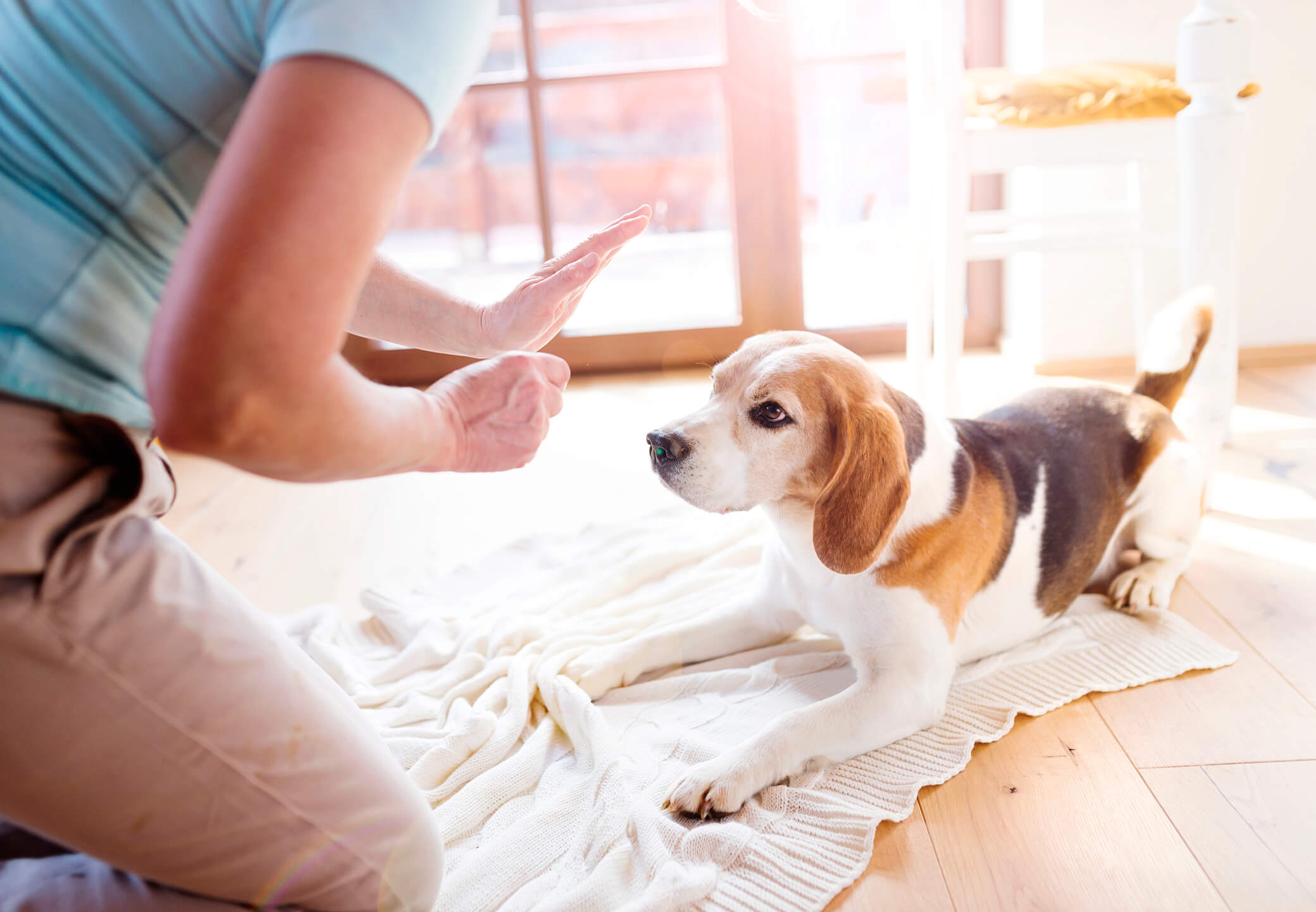
Pawsitive Reinforcement for Less-Stressed Training
Many pet parents are quick to snap at their dogs when they misbehave. After all, it’s frustrating when dogs repeatedly poop in the house or tear up the couch cushions. But punishing them only teaches fear—not obedience. Punishment may work in the moment, but owners who use this training tactic will find the bad behavior happens over and over again.
Here’s why pet parents should replace punishment with positive reinforcement during their training sessions.
The damaging effects of punishment
Punishment only teaches dogs about bad behavior. This training method doesn’t show them what good behavior looks like. For instance, a pet owner may yell at their dog for pooping in the house rather than praising the dog for doing their business in the back yard.
Some pet owners claim that harsh punishment is an effective method in dog training. Intimidation and physical force might stop dogs from misbehaving in the moment, but using negative tactics to train dogs doesn’t work in the long run. Punishment can quickly escalate into shouting at and potentially hurting the dog, inevitably teaching the dog to fear humans. Instead of teaching obedience, the owner ends up teaching fear and distrust.
Dogs who are punished often develop triggers for certain scenarios. For example, a dog may bark every time a visitor approaches the house. If the owner scolds them or yanks on their collar for barking, the dog will associate negative feelings with visitors in general. They don’t learn that barking at visitors is wrong. Instead, the dog gets scared every time they interact with strangers.
Over time, punishment can make a dog lose trust in their owner. When the pet parent approaches the dog, they won’t be able to tell if the human is about to pet or hit them. The dog might be constantly afraid they did something to upset the owner and can’t tell the difference between right and wrong.
Additionally, punishment without correction can lead to learned helplessness. This is when a dog cowers and becomes submissive all the time. The dog is so afraid of punishment, they give up on trying to please the owner altogether. Dogs with learned helplessness may not get in trouble as often, but they sustain emotional scarring in the process.
Dogs who receive harsh punishment still misbehave—they just make sure the owner isn’t around to see it. The dog knows they’ll get scolded if they jump on the counter while the owner is in the room. But when no humans are present, they can get away with whatever they want.

How to incorporate positive reinforcement
The most successful training method is positive reinforcement. It will encourage good behavior instead of punishing bad behavior. Dogs trained with positive reinforcement stay motivated with the promise of treats, toys and praise. But most importantly, positive reinforcement teaches obedience while keeping your pup happy!
These tips will help you incorporate positive reinforcement into training sessions:
- Reward your pup right away: Dogs must associate the treat, toy or praise with good behavior. Otherwise, the dog will think they got rewarded for no reason! Waiting even a few seconds after the desirable act is too late. Reward your dog when they’re in the process of completing good behavior like dropping a toy or sitting patiently while you clip on the leash.
- Don’t give treats every time: It’s okay to give your dog lots of treats when they’re still learning a command. Once they get the hang of it, gradually reduce how frequently they receive a treat for good behavior. That way, your dog will complete the desirable act regardless of whether you have a pocket full of treats or not. Don’t let your dog get into the habit of behaving only when food is available!
- Give them a calming supplement: Dogs trained with positive reinforcement may still experience some anxiety during training sessions. Adopted dogs, in particular. might have encountered a traumatic incident with a previous owner. You can make training sessions a lot more enjoyable for your pup by giving them a calming supplement shortly before the session. All-natural stress-relief supplements contain powerful adaptogens that relax the nervous system, promoting a peaceful state of mind.
Obedience is less about discouraging bad behavior and more about rewarding good behavior. Positive reinforcement will set up your dog for success by instilling a sense of trust and strengthening the bond you two share. You get a well-trained pup, and in return, they get showered with affection. It’s a win-win for both of you!


